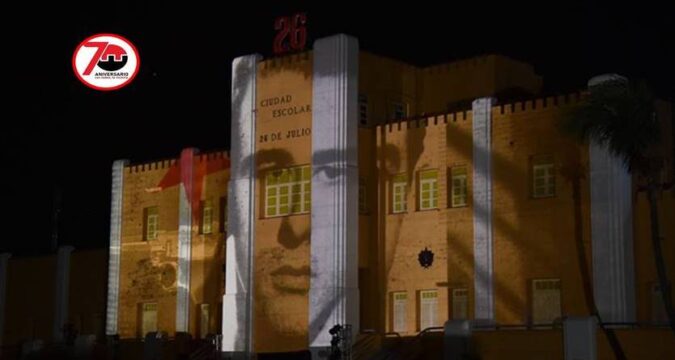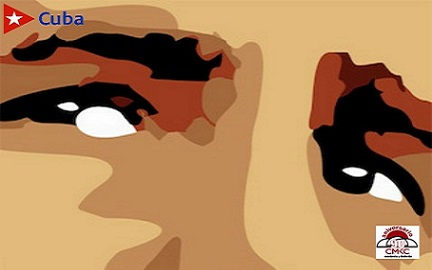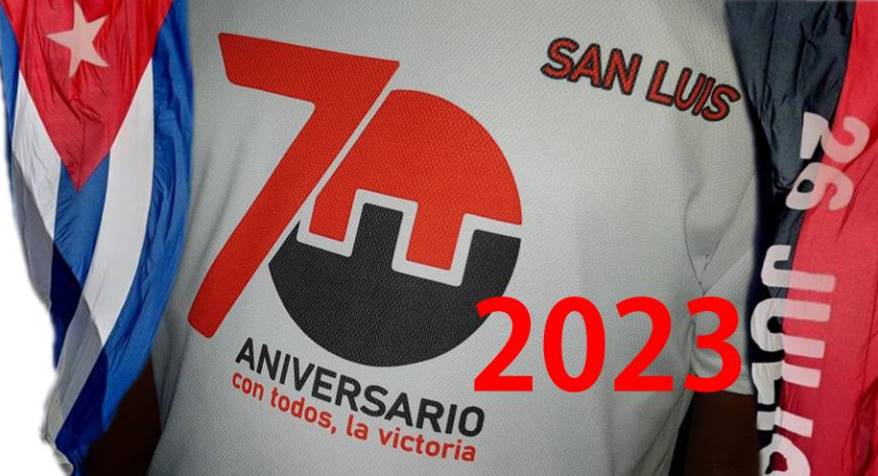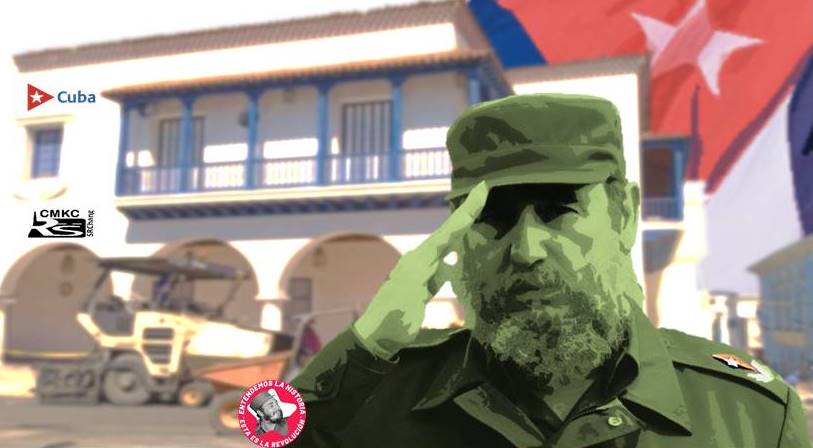

The lessons of Moncada today emerge from the eyes of journalist Dayron Chang, author of “Geografia 26-7,” the new documentary series that as a tribute to seven decades of the events of July 26 was recently broadcast on national television.
What moves a renowned doctor, with an established and economically prosperous life; with family and daughters in Matanzas, to leave all that to come to assault a barracks in Santiago on the same day of his birthday?
Why would a group of such young men decide to confront a military regiment superior in men and weapons? Would today’s youngsters have the courage to sacrifice even our own lives to change the things we want to change?
Santiago journalist and filmmaker Dayron Chang finds answers in the past to understand the present; certainties, new questions, even patterns to shape the future.
Among the most cherished moments of his 33 years of life, he has the memory of 12 times in which he participated as a pioneer in the symbolic assault to the Moncada barracks and his voice was the voice of the whole Cuban land: Glory to the morning of Saint Ana…!
His professional curriculum includes more than a dozen series dedicated to events and personalities of national history, but for the first time he approaches as an audiovisual director to what happened on July 26, 1953.
«I never wanted to approach the event, because it is a much visited story; about it there are many materials inside and outside Cuba, and it was complicated to offer a vision 70 years later».
From the motivating impulse of Commander of the Revolution Ramiro Valdes was born “Geografia 26-7,” the new documentary series recently broadcast by national television as a tribute to seven decades of the deed.
«Unconsciously, Commander Ramiro Valdes made me see that many of the things we included in the series have not been heard by current generations, as many have not heard Melba and Haydee neither narrate their stories nor know of the memories about the action told by its protagonists, for example.
«The series may work, or not: for it will still be a challenge to reach young people, but it is designed for current generations to listen to those stories that seem distant to us, although they are part of the Cuban reality, because if we still use the 26th as a symbol we should understand how that emblem was built and what it could bring us to raise a dialectical Cuba today.»
The thesis of PhD Reynaldo Suarez, historical advisor on the geographies of Moncada, is supported in nine 12-minute chapters. Because, as it is highlighted from the beginning, the 26th is not a date, nor a place, nor a person, it is much more than post sentry No. 3. Beyond the narration of the event, the analysis of historians of national prestige is privileged together with the testimony of relatives of the participants and five of the protagonists of the action.
The vision of July 26 as a national heroic deed beats in the series, which gathers in images all the scenarios of the event: Havana, Artemisa, Mayabeque, Matanzas, Bayamo and Santiago de Cuba, accompanied by abundant photographic, sound and audiovisual archival material.
From an agile narrative, attached to current codes, the action emerges in its context, dramas and nuances. It is the Cuba of the 1950s, distanced from the epic of the wars of independence by politicians who had appropriated its symbolic references to achieve other objectives. In those days prior to the deed, the university professor also finds the lessons of the event.
«I believe that the greatest lesson of the 26th is that it shows us when we must transform the logic of thought. History is there to tell you that what did not work, you have to do it differently; Fidel realized that and so did that generation.
«From the interviews, the ethical principles of that youth are striking, because they lived in a harsh reality of unfulfilled aspirations and unrealized desires. Fidel surrounded himself with people who perhaps did not have all the academic studies, but they had dreams and he built his project not only on the basis of the problems of society, but also on the dreams of that time,» he says.
Assault: Moncada is not dogma
The young journalist assures that, 70 years later, the Moncada teaches us not to be dogmatic. «With historians I learned that Fidel was a practical man and so was that generation: I have a problem and the solution does not have to be strictly conventional, because the Homeland and the hope of the people are at stake.
«It is a group of people who gave their lives for a project, a personal dream. There are stories of young people who suffered because they did not have what they needed or because their mother, for example, sold fritters to feed seven children; and they, out of conviction, decided to transform that reality, and that deserves respect.
«I wanted to dedicate a chapter to the families because the backbone of a martyr, of a hero, is what he learned in his closest environment; in this case, when you investigate you realize that there is a family environment that influenced what they determined, and above all it was affected with what happened afterwards.
«We have not studied enough the psychological and spiritual consequences of such a decision. For some it is madness, for others, a certainty, and in the end it is a decision. There are mothers who unexpectedly never saw their children again; there are unresolved goodbyes; loves that never ended, siblings who never embraced again.
«What most impacts history are not the epics, but how much is given, lost, sacrificed… that’s why I believe that every time we do things today we will have to think about the spiritual cost to society.
«Abel says to Pedro Trigo: «Pedro, today the worst may happen, but what we do, in the year of Marti’s centenary, is going to remain.» If we lose that closeness with people’s hopes, if we fail to interpret them, we will be losing part of Fidel’s project,» he explains.
And the creator is «assaulted» by history, that which is the sap to understand where we come from, a safeguard against colonizing attempts, flirtatious to seduce, although, unfortunately, it often reaches the new generations from the scheme and the stereotyped vision.
«History is in danger when political interests are too transversal to name it. It is necessary to make an accurate use of it. Olga Portuondo always says that you have to be as scientific as possible because history is not a straight line, nor is the human being. If people do not see the contradictions in a fact, in a person, they do not find it credible.
Cuba remembers Fidel Castro’s defense speech

«Seventy years after the Moncada, the process of building that history cannot be the same, nor can it be schematic; Marti and Fidel are not seen in the same way. Narratives have to establish connections that generate closeness, exploit universal values.
When you say that Fidel’s father did everything to keep him away from the struggle, but he, who could have been a wealthy lawyer, kept his stance, you realize that the story is based on people’s emotions, and the more truthfully it is shown, the more credible it is.
«Reaching the new generations requires a strategy, understanding the operating logics of a sector that sees through the multiscreen universe, knowing that audiences are segmented by interests and needs. As a filmmaker, with all humility, I can tell you that I still haven’t fully achieved it.”
As a communicator, Dayron Chang assumes what he believes are the debts of his profession with that resounding and shocking story. «It is necessary to study more the political complexities that led to the event; to locate who Fidel Castro was in that scenario, to address more the role of civil society to save the Moncada attackers, including the role of the church, with Monsignor Enrique Perez Serantes.
«It is necessary to show the crimes with the crudeness that occurred, the family consequences, the aftermath, and learn to incorporate the logic of the enemy; that would complete the Moncada discourse and make it gain strength as a symbol, showing it for what it is: a complex fact, expression of contradictions and aspirations, much more than an assault.»
A Mambí with his foot always “in the stirrup”
























